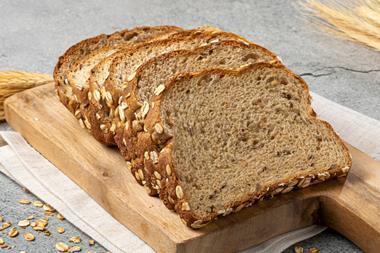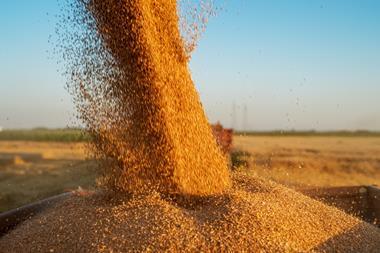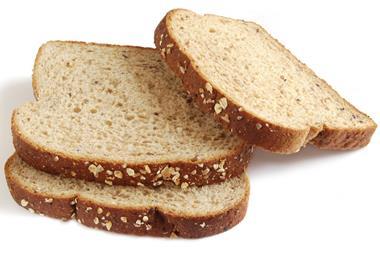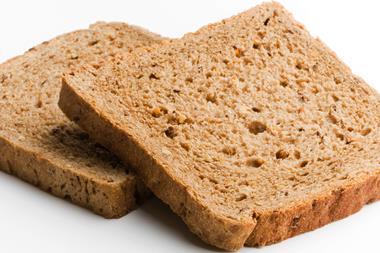
Defra has confirmed changes to the Bread & Flour Regulations 1998, including an increase in the levels of calcium carbonate, iron, and niacin in non-wholemeal flour plus the addition of folic acid.
It also said it would be introducing a ‘legal description that means wholemeal flour must consist of the whole product from the milling and grinding of cleaned cereal’.
This came as part of an in-depth update from Defra, which detailed the general responses and government response to consultations on the regulations.
The UK government and devolved administrations agreed to take forward proposals to increase the minimum level of calcium carbonate, iron, and niacin in non-wholemeal flour to 15% of the nutrient reference value per 100g of flour. They will also legislate to ensure that non-wholemeal wheat flour will be required to contain 250 micrograms of folic acid per 100 grams of flour to help in the prevention of neural tube defects in babies.
Of the proposals put forward, Defra said it intended to proceed with all of the ones set out in the consultation with the exception of the exemption of flour used as a minor ingredient. This was ‘primarily due to the added complexity this would create which could have the potential to compromise the effectiveness and enforceability of the regulations’.
Manufacturers have 24 months to adjust their processes and adapt changes in both the composition and labelling of products, and to spread the cost into their natural relabelling cycles, Defra said.
Timeline allows for changes
The changes have been welcomed by several trade bodies. UK Flour Millers, the trade association for the UK flour milling industry, was among them.
“It is great to see that Defra have taken feedback on board and are proceeding with an approach that both supports public health and is practical for industry to deliver,” said Joe Brennan’s, UK Flour Millers’ head of technical and regulatory affairs.
“Flour is one of the most common food ingredients in the UK, present in a third of all supermarket food products – the scale of the change to fortify flour with folic acid is therefore enormous. Labelling changes will be a challenge and the proposed 24-month implementation period is welcome to give the supply chain enough time to manage this.”
The sentiment was echoed by the Craft Bakers Association (CBA).
“It is important that businesses are given time to make adjustments to the change in regulations for wholemeal and non-wholemeal flour in terms of milling, packaging and labelling. The government is proposing two years which will help reduce waste and mitigate excessive relabelling costs where businesses stockpile packaging,” said CBA chief executive Karen Dear.
Exemptions
Small scale mills – those producing less than 500 tonnes of flour per year – are exempt from the fortification requirements.
On this topic, Dear added: “Exempting small scale mills from the changes is also welcomed to avoid imposing costly expenditure on these businesses that face particular economic challenges.”
The Real Bread Campaign, which has previously stated that the fortification of UK-milled flour is a ‘sticking a plaster approach’, also welcomed the exemptions from the requirement.
Campaign co-ordinator Chris Young said: “We welcome these changes, which at least offer the choice of additive-free food to a few more people, as well as giving a USP to the farmers, millers and bakers who will produce these flours and Real Bread from it.
“It’s frustrating that people who enjoy food made using white and brown wheat flour, which is the vast majority of us in the UK, don’t have that choice.”
Wholemeal debate
The use of the term wholemeal remains contentious in some parts of the industry. The Real Bread Campaign has complained to the trading standards departments of several councils about its use to describe ‘50/50’ loaves and those that contain small amounts of white flour. At the time, Defra clarified that Regulation 6 of the Bread and Flour Regulations 1998 is “clear and strict” in that the term wholemeal shouldn’t be used in the labelling, advertising, or name of such bread, but instead declared on the ingredients list. However, it stressed it was not making a statement of the law, and that only the courts can interpret the law in a legally binding way.
To help businesses navigate this, guidance on Regulation 6 is expected to be released shortly.
In response to the Defra’s most recent statement that it would be introducing a legal definition for wholemeal so that consumers can be assured wholemeal flour is authentic, Young from the Real Bread Campaign said: “We’re glad that the government listened to us on this point. We welcome this small step towards clearing up the confusion surrounding use of the words wholemeal and wholegrain.”
































No comments yet